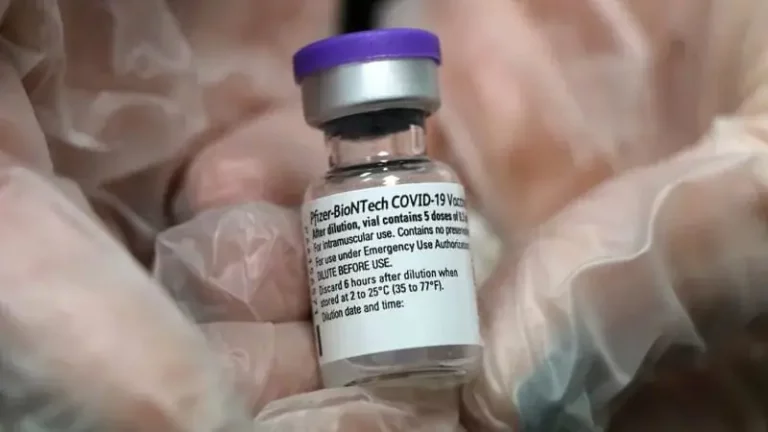New blood test can predict stroke, heart attack, heart failure, death

- Cardiovascular risk prediction is important for clinicians caring for patients and for scientists developing new drugs.
- Scientists can use biomarker surrogates as signs that the risk of cardiovascular disease (CVD) may be increasing or decreasing.
- In the new study, Scientists have developed a blood test that offers an accurate and personalized prediction of cardiovascular disease.
In a new study, scientists have reported results that show a blood test can be used to predict cardiovascular disease.
The study, published in the journal Science Translational Medicine, opens the door to more individualized treatment plans for cardiovascular disease. It may also improve the speed at which new cardiovascular disease drugs can be identified and developed.
When a new drug is developed, scientists must ensure that it is both effective and safe. This is a rigorous process that can often take several years. While significant, this significantly slows the rate at which new drugs can be developed and also increases costs.
One way to speed up and reduce the cost of drug development without sacrificing efficacy or safety is to use a surrogate biomarker as a predictor of risk.
If a surrogate can reliably predict risk, some steps in clinical trials can be simplified.
Finding a surrogate that can accurately predict the risk of certain diseases can also directly benefit patients. If a clinician can measure a reliable surrogate, they can potentially prevent disease before it develops, reducing risk to the patient.
Medical News Today spoke with Dr. Stephen Williams – SomaLogic’s Chief Medical Officer and corresponding author of the current study – who highlighted the importance of surrogates, particularly for CVD risk.
“Substitutes are the ‘holy grail’ in drug development and personalized medicine.”
“In situations where clinical outcome studies are needed today, a surrogate enables early and cost-effective discontinuation of unsafe or ineffective drug candidates and supports the acceleration of safe and effective drugs. Trial participants do not need to have events or die to contribute to the signal.
“In personalized medicine, a surrogate enables cost-effective allocation of treatments to those who need them most and potentially increases uptake of new, more effective drugs to improve outcomes,” said Dr. Williams.
In 2004, the United States Food and Drug Administration (FDA) published a report recommending that researchers identify biomarker surrogates that could aid in the development of cardiovascular disease drugs and improve individualized patient care.
However, in the years that followed, this did not happen. Dr. Williams explained to DTM why it took so long to achieve the FDA recommendation.
“Substitutes are very valuable, but they also have serious consequences if mistakes are made – for example, the approval of a dangerous or ineffective drug. The weight of evidence needed is therefore very high, in order to have confidence that their value in patient care outweighs the potential consequence of errors.
Dr. Williams emphasized that a surrogate must be able to do three things: first, accurately predict likely clinical outcomes; second, being able to change as potential risks change; and third, to work regardless of the risk factor.
“It’s quite common to do point 1 – for example, risk prediction from artificial intelligence approaches for medical records, or combinations of risk factors or genetic factors. But usually these factors also cannot do 2 – be faithful in response to the change in risk.
“It’s either because they are immutable – for example, genetic, demographic or medical history – or because they are reverse causal – for example, artificial intelligence applied to medical records usually selects the number of drugs that a patient takes as a predictor of risk, so removing someone from all of their drugs would paradoxically and erroneously create a lower risk prediction.
Dr. Williams said he and his team were able to achieve the FDA recommendation because SomaLogic’s business model supported the research needed to develop the CVD substitute, building on frameworks proposed by the FDA.
To develop the test, Dr. Williams and his colleagues analyzed blood plasma samples from 22,849 people.
They studied 5,000 proteins from these samples and, using machine learning, identified 27 proteins that together could predict the risk of stroke, myocardial infarction, heart failure heart failure or death over a 4-year period.
Talk to DTM, Dr. Rebekah Gundry, professor and vice chair of the department of cellular and integrative physiology at the University of Nebraska Medical Center, said that “clinically, these findings are potentially very important.” Dr. Gundry, who was not involved in the study, is also the director of the CardiOmics program at the Center for Heart & Vascular Research atUniversity of Nebraska.
“Having a panel of 27 markers that could be used to predict cardiovascular risk would be an improvement over current risk score calculators like high cholesterol, which can serve as an indicator for all of us as an average but is a poor predictor for the individual and does not give good information about when a cardiovascular event is likely to occur,” said Dr. Gundry.
Dr. Gundry said the findings will help prevent the disease before it requires major treatment.
“A major goal of cardiovascular research is to find new ways to predict patient outcomes as soon as possible after disease onset, because prevention is always easier than reversal. Basically, we want to know what will happen with enough notice to change the outcome.”
“Having a single blood test provide information on all major cardiovascular outcomes and deaths would have a significant impact on clinical decisions about when and what interventions to prevent or delay the progression of cardiovascular disease.”
-Dr. Gundry
“Proteins play a vital role, which is why they have been used so effectively as indicators. The study by Williams and colleagues provides evidence that the simultaneous measurement of a panel of circulating proteins, including proteins previously associated with cardiovascular disease and those with no prior known associations, could provide a means of predicting outcomes,” said said Dr. Gundry.
#blood #test #predict #stroke #heart #attack #heart #failure #death






